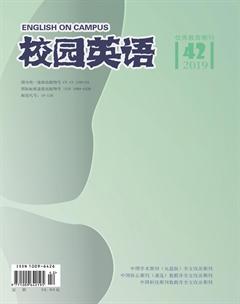Studies on interactive classrooms focusing on Questioning strategy
【Abstract】Questioning has always been acknowledged as stock-in-trade of classroom teachers and fundamental to outstanding teaching. How to ask good questions and how to avoid ineffective questions are always the problems for most teachers. The paper is to apply some strategies to help teachers in the future and let students to learn effectively.
【Key words】Questions; Questioning; strategies
【作者簡介】馬琳(1980-),女,吉林人,吉林化工學(xué)院,講師,碩士,主要從事大學(xué)外語教學(xué)的研究。
1. Definition of questions
Kathleen Cotton firstly in her paper said that: in classroom settings, teacher questions are instructional cues or stimuli that convey to students the content elements to be learned and directions for what they are to do and how they are to do it. Questions enable teachers to engage students in higher levels of cognition or more specifically critical thinking.
2. Effective questioning strategy
The most important principle of question design is to design questions that encourage students participation. Good questions are questions that should improve students responses and learning abilities. So as designers who ask questions, teachers should make sure one thing:
(1)What kinds of questions should be avoided?
Questions should not be asked only by yes or no. Because these kinds of questions involve guessing, impulsive thinking, not conceptual thinking or problem solving. So if the teacher accidentally asks this kind of question, he or she should follow up immediately with a why or how question and combine questions with the context. Dont ask indefinite or vague questions. For example “How would you describe this lesson?” Such questions are confusing and often must be repeated or refined. Questions should be clearly worded and coincide with the intent of the teacher.Dont ask suggestive or leading questions. Because these questions are not good. For example “Why was && a great president?”? The question really calls for an opinion and involved many personal factors, but a position or judgment is already stated.Dont ask overload questions. In fact, many teachers like to ask overload questions. That is to say, to ask students several questions that includes many words at one time. These questions are indefinite, multiple, and wordy.Dont ask tugging questions. For example, “What else? Who else? ” These tug questions at the student do not really encourage the students thoughts.
(2)Some other factors that teachers should be taken into account are:Providing a positive questioning environment. Teachers attitudes and behavior in classrooms often influence questioning to a large extent. Teachers should be gentle to students in order to make the relaxed and willing to answer. Teachers who treat students equally and are always smiling are very popular among students. This is always an effective way for teachers to remove the gap between teachers and students.Questioning at an appropriate stage. This is a very important issue because it influences the students ability to solve questions. As a teacher, she or he must know which part of the text or which step of the class is appropriate to ask questions.
Questioning in proper time. Some experienced teachers know not only how to design questions but also when to question. Questioning at the proper moment can stimulate students to think and to respond.
Selecting proper students. Teachers use various levels of questions during a lesson. But the students in a class are very different and each of them has different proficiency level. So teachers should select appropriate students to answer questions according to the level of questions. Also the teachers should not always select volunteers to answer questions. The non-volunteers should also be encouraged to answer.
Encouraging students competition in answering questions. Competition in answering questions between students can attract their attention in the class and let them participate in the reading more actively. This is an effective way to make the atmosphere lively.
3.Conclusion
Therefore, generally speaking, good questions are asked purposefully to achieve a specific purpose; clear-students understand what they mean; stated briefly in as few words as possible; stated simply, in conversational English; thought-provoking so that they stimulate thoughts and responses; limited in scope so that only one or two points in a chain of reasoning are called for; adapted to the level of the class tailored to the kinds of students in the class.
References:
[1]Gabrielatos (1997). A question of function: Teacher questions in the EFL classroom.

